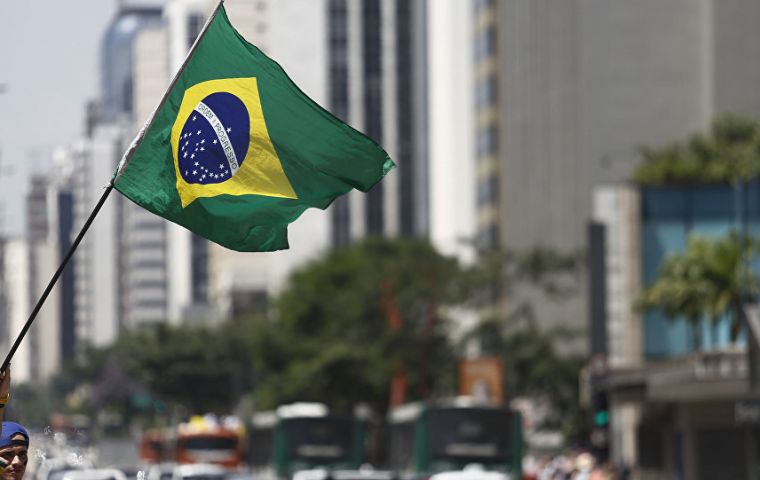MercoPress. South Atlantic News Agency
Investors confident of Brazil: Net FDI flows equaled 4.7% of GDP in 2018
 Brazil’s current account deficit last year rose to US$ 14.51 billion, or 0.77% of GDP, almost exactly double the US$ 7.235 billion shortfall registered in 2017
Brazil’s current account deficit last year rose to US$ 14.51 billion, or 0.77% of GDP, almost exactly double the US$ 7.235 billion shortfall registered in 2017 Brazil’s current account deficit doubled last year as economic growth fueled demand for foreign goods and services, while foreign investment reached its highest share of GDP since 2001, the central bank said on Monday.
The deficit remains narrow enough not to dim the generally positive outlook for Brazil that is taking shape among international investors for the year ahead.
Brazil’s current account deficit last year rose to US$ 14.51 billion, or 0.77% of GDP, almost exactly double the US$ 7.235 billion shortfall registered the year before, equivalent to 0.35% of GDP.
Imports rose 21% on the year while exports rose 10%, which narrowed the trade surplus to US$ 53.59 billion from US$ 64 billion the year before. But economists at Citi said the current account deficit, a broader measure of trade and capital flows, remains “comfortable” at less than 1% of GDP.
“(Brazil’s) external accounts should not pose any constraint to a benign outlook this year,” they wrote in a note on Monday.
Investors are paying close attention to plans of the government of new President Jair Bolsonaro to increase Brazil’s economic competitiveness via a mix of tax cuts, privatization and, most importantly, pension reform. The latter could save up to 1.3 trillion reais over the next decade, according to Economy Minister Paulo Guedes.
Some US$ 88.3 billion of foreign direct investment poured into Brazil last year, the central bank said, exceeding its earlier projections of US$ 83 billion. Net FDI flows over the 12 months to December totaled 4.7% of GDP, the highest since June 2001, the central bank said.
Investors pulled funds out of Brazilian financial markets last year, however. Central bank figures showed that foreign investors withdrew US$ 4.265 billion from Brazilian stocks in 2018, the most in a decade.
The pace of foreign inflows into Brazilian financial assets is expected to pick up this year, however, with investors attracted by Bolsonaro’s market-friendly policies and by relatively high interest rates.




Top Comments
Disclaimer & comment rules-

Read all commentsREF: “Investors confident”:
Feb 05th, 2019 - 07:29 am 0The Brazilians too are confident about the politicians who represent them:
https://www.otempo.com.br/image/contentid/policy:1.2131023:1549226603/CHARGE%20O%20TEMPO.JPG?f=3x2&w=620&$p$f$w=ac4ac92
Commenting for this story is now closed.
If you have a Facebook account, become a fan and comment on our Facebook Page!